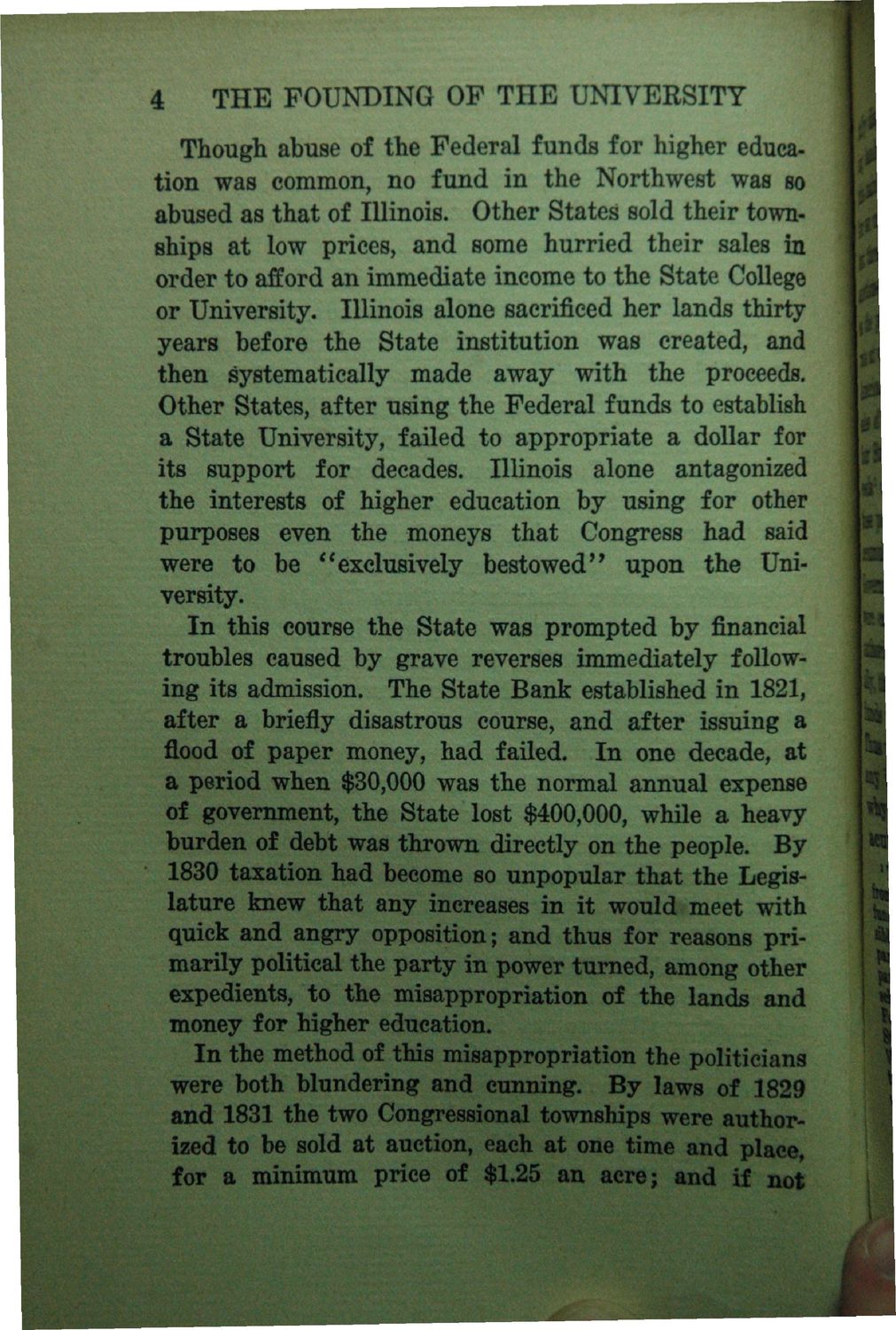| |
| |
Caption: Book - History of the University (Nevins)
This is a reduced-resolution page image for fast online browsing.

EXTRACTED TEXT FROM PAGE:
4 THE POUNDING OP THE UNIVEBSITT Though abuse of the Federal funds for higher education was common, no fund in the Northwest was so abused as that of Illinois. Other States sold their townships at low prices, and some hurried their sales in order to afford an immediate income to the State College or University. Illinois alone sacrificed her lands thirty years before the State institution was created, and then Systematically made away with the proceeds. Other States, after using the Federal funds to establish a State University, failed to appropriate a dollar for its support for decades. Illinois alone antagonized the interests of higher education by using for other purposes even the moneys that Congress had said were to be "exclusively bestowed" upon the University. In this course the State was prompted by financial troubles caused by grave reverses immediately following its admission. The State Bank established in 1821, after a briefly disastrous course, and after issuing a flood of paper money, had failed. In one decade, at a period when $30,000 was the normal annual expense of government, the State lost $400,000, while a heavy burden of debt was thrown directly on the people. By 1830 taxation had become so unpopular that the Legislature knew that any increases in it woulcbmeet with quick and angry opposition; and thus for reasons primarily political the party in power turned, among other expedients, to the misappropriation of the lands and money for higher education. In the method of this misappropriation the politicians were both blundering and cunning.|JBy laws of 1829 and 1831 the two Congressional townships were authorized to be sold at auction, each at one time and place, for a minimum price of $1.25 an acre; and if not
| |